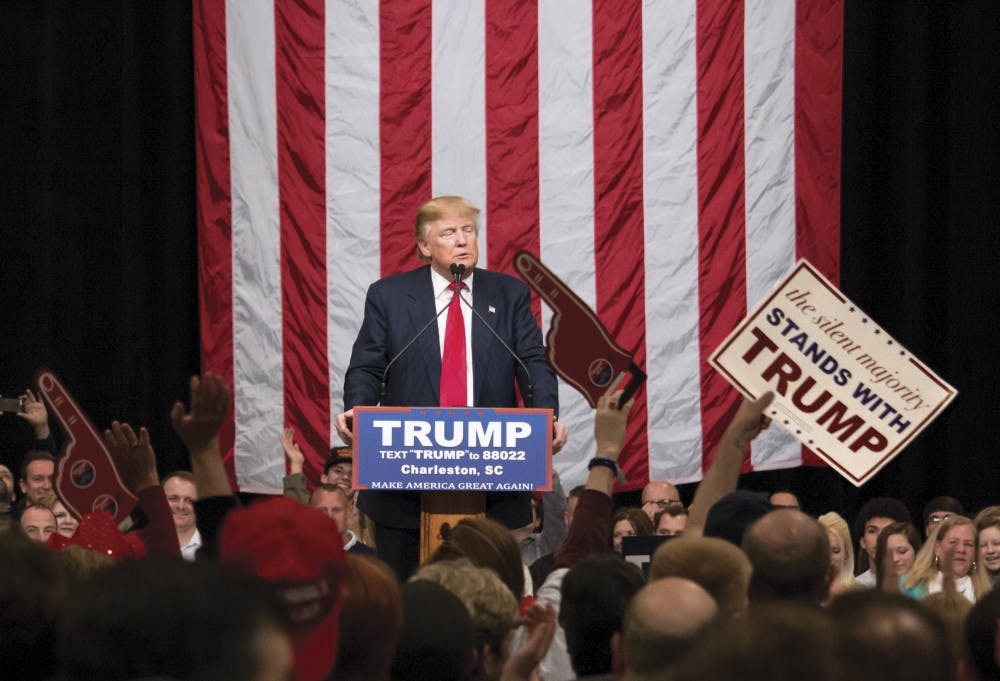
Penn students and professors gathered in Huntsman Hall last Friday to discuss religion, the media and why the 2016 election was surprising for many.
The speakers — professors John Lapinski, Matthew Levendusky and Geoffrey Layman — shared their thoughts on the election in one of a series of discussion panels hosted by Penn’s Program for Research on Religion and Urban Civil Society.
Levendusky, a professor of political science at Penn, described the recent election as a “black swan,” meaning that it was unforeseen.
“A whole series of very small things happened, and had any one of them not happened, the outcome would’ve been different,” said Levendusky, who warned against ascribing too much importance to individual factors in a complex chain of events.
One of the more important factors, Levendusky said, was the way media covered the election. A much greater volume of coverage during the race was focused on 1968 Wharton graduate and President-elect Donald Trump, only swinging toward Clinton during events like the Democratic National Convention.
“Even though the tone varied somewhat in that coverage, Trump was always massively leading it,” Levendusky said. “That affects the way people perceive the race.”
“It was very much a surprising election for everyone,” said Lapinski, director of Penn’s Program on Opinion Research and Election Studies and director of the Elections Unit at NBC News. He said NBC was one of the last media outlets to call the election.
Lapinski said election forecasting may have been inaccurate because of the reluctance of many white voters to respond to polls.
“A lot of times media people take the polls as the truth,” Lapinski said, adding that in reality “a poll is a snapshot.”
The “religious divide in American politics ... helped Donald Trump and probably hurt Hillary Clinton,” said Layman, a professor of political science at Notre Dame University.
Layman also noted that many white evangelical voters ended up supporting Trump. He noted that their support may be surprising to some given Trump’s profile — he is twice divorced, supports same-sex marriage and has said transgender people should choose which restroom they feel comfortable using. He added that Trump did better among evangelical voters who attend church less frequently than those who regularly attend, possibly because of a divide between the groups in education and socio-economic class.
An array of factors affected the election, and the speakers acknowledged that they would likely be having a very different discussion had Clinton won.
“Republicans came home to Donald Trump at exactly the right moment,” Levundusky said.
The Daily Pennsylvanian is an independent, student-run newspaper. Please consider making a donation to support the coverage that shapes the University. Your generosity ensures a future of strong journalism at Penn.
Donate



